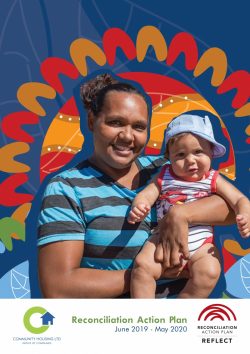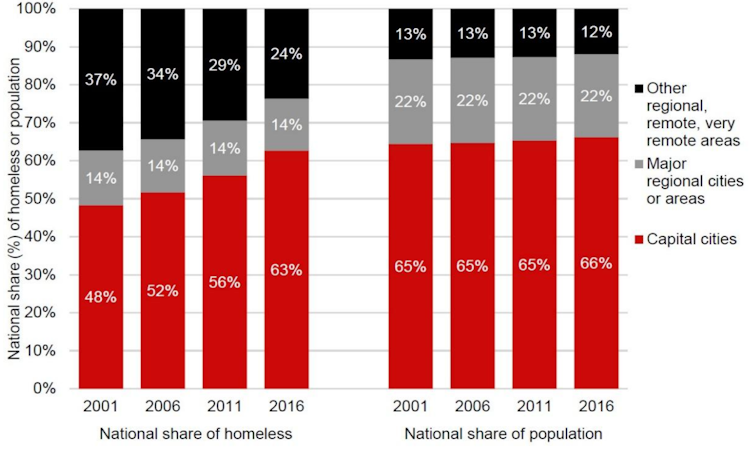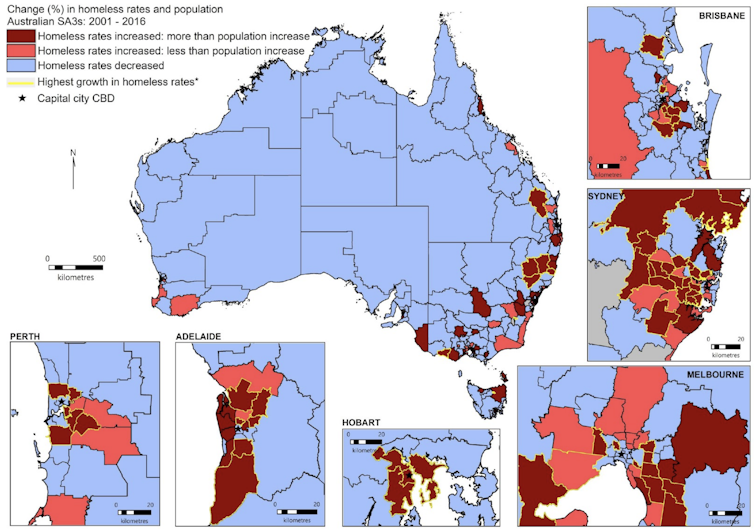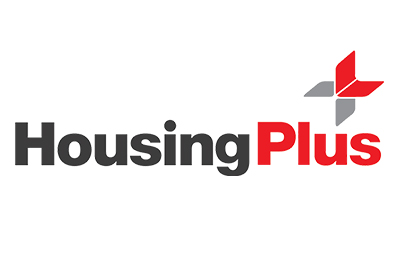Australia’s largest national not for profit community housing provider, Community Housing Limited (CHL), delivers affordable housing in Australia, South Asia, South-East Asia and South America and is unstoppable in expanding its international footprint across those regions in the world where extreme housing poverty remains pervasive.
In Australia, CHL targets low to moderate income people who have the highest housing need or who have been disadvantaged by market failure in their efforts to secure long-term rental accommodation. These people may be living in metropolitan areas or in regional Australia.
In other countries, CHL works with people who are languishing in slums or in informal housing, unable to secure safe, affordable homes to achieve home ownership.
CHL’s 1993 founding was inspired by the need “to develop more organisations outside of public housing to deliver housing to specialised client groups in need,” recalls Founder and Managing Director, Steve Bevington.
When government funding came down the pipeline, the organisation got its start helping community groups in Victoria carry out small scale, specialised housing projects.
The not for profit has continued to grow ever since and is now the largest community housing provider in the country with over 11,000 properties under its management with the widest reach.
“We have been on a long journey, from the little projects with community groups in Victoria, through to expanding across Australia, to expanding overseas,” Mr Bevington recounts.
But, regardless of how large CHL has grown, “the original intention of the organisation is still there at the core,” says Steve marking the organisation has been in existence for a quarter of a century.
Under the leadership of its Managing Director and a forward-thinking and supportive Board, CHL has undoubtedly been the biggest champion of affordable housing at home and in these developing countries.
“We analyse the circumstances of communities and develop programs or projects so that they can secure affordable housing; it’s just that the extent of it has grown dramatically from those small projects.”
It has been CHL’s passion and commitment to provide stable accommodation to those most in need regardless of where they live in the world, that has seen the organisation’s international operations develop.
To effectively manage these operations, CHL has established subsidiaries in each of the international jurisdictions in which it works making differences to the lives of many in Timor Leste, Chile, India, Peru, Papua New Guinea, Indonesia and Rwanda.
“We have always been an adventurous and optimistic organisation. Prepared to take a chance when needed. We’ve always had people who were prepared to dream and do things and it has been this persistence that has enabled us to move into places and drive change.
Whether it be in Australia or overseas, we have never been the ones to sit by idle, in fact we’ve always operated in environments which are extremely challenging and at times difficult to function, but despite this we have managed to advocate and achieve affordable housing outcomes for those disadvantaged and that is something I am very proud of. Operations have developed incrementally whether in Australia or overseas until the local environment is responsive to addressing housing affordability. For example, CHL established both its Tasmanian and Timorese operation in 2004 and neither achieved sustainable size and growth until 2014 but the fact that CHL had always been there meant that it was in a position to respond when circumstances changed such as the introduction of the Better Housing Futures stock transfer program in Tasmania and Government funding for affordable housing in Suai, Timor Leste.
Our international operations are all tailored to meet the needs of the local communities, there is never a “one size fits all” approach to delivering housing services and the flexibility and capacity that we have been able to offer to the communities we work with makes all the difference.” emphasises Steve. It has been this level of understanding of the need to be flexible and respective of the needs of the people at a local level and the willingness to work alongside that has seen CHL thrive.
From Papua New Guinea to Chile, the environment is carefully analysed to determine what kind of housing is culturally acceptable, where this housing needs to be located, and how much people can afford to pay for this housing. The team must also consider what kinds of construction technologies should be introduced and what type of financing arrangements can be developed to ensure affordability.
Developing projects in regions which have always failed to create sustainable housing for the poor requires tenacity in maintaining trust and confidence to move forward. CHL is the only Australian housing organisation that has ventured overseas starting with Timor Leste and has been operational in the region for 14 years.
The venture has seen the development of a building technology which has introduced housing to the country at a cost that people can afford by creating employment and providing training in the manufacture of materials and construction of their housing.
“Our goal is always two-fold as we not only intend to eradicate housing poverty through the provision of affordable homes, but our intention is to provide the necessary support where necessary to empower communities through training and skill development”, Steve Bevington continued.
When CHL ventured overseas, the team encountered some new challenges that had to be addressed in new and innovative ways. “We went to countries where people subsisted off their land and had no income whatsoever,” shares Steve.
“There was no means by which they could pay for housing.” Governments were unable to offer much help, leaving CHL to forge a novel path. “In order to provide people with the means to pay for their housing, we added to our aims the development of training and employment related to construction and housing delivery.”
Over the period that CHL has operated in Timor Leste it has employed a 100 percent Timorese workforce which can carry out all stages of housing development.
This workforce was responsible for the completion of an affordable housing project in Timor Leste and included 87 homes, while delivering an accredited training program for the local workers and providing on-the-job training opportunities to up to 400 local unskilled workers. This project is now being expanded with the completion of design of a further 64 houses in the same region and planning for major affordable housing developments in the south of the country.
Recently, CHL Timor completed the construction of an accommodation facility for the teaching and administrative staff of San Carlos School in Dili, an Educational Retreat for the Marist Brothers in Baucau, design of a Teacher’s Training Centre to be funded by Monte Saint Angelo Mercy College in Maliana.
In Chile in the city of Valparaiso, CHL has carried out a number of projects comprising 35 houses priced at around 75% of the market value available to those lower income workers who receive a government subsidy to secure housing as well as projects to move communities living in slum conditions in central and southern Chile comprising 68 homes, CHL is now ready to commence affordable housing projects comprising 40 apartments for low income workers of Playa Ancha University and in Limache, Chile, some 50km from Valparaiso, we are about to commence an affordable housing 54 unit project as an alternative to the high rising apartment prices in Valparaiso. The build will be an ideal economic solution to those willing to commute as it will be along the major train line.
In Peru, CHL has made great advancements, with the commencement of its first build project in the city of Chincha. While employment is solid in the region, affordable housing is scarce and so CHL Peru considered Chincha to be an ideal location to assist those in need. The pilot project of a 20 unit complex is now under construction and in March, CHL Peru opened a sales office close by to negotiate sales of these competitively priced homes.
Prior to this, CHL Peru delivered a variety of housing design prototypes for 600 families in a rural central Peruvian community as part of a consultancy project with the Banco Interamericano de Desarrollo (BID), the South American branch of the World Bank.
The consultancy included numerous field trips to analyse existing buildings and to conduct workshops with affected residents who will soon lose their homes due to the construction of a freeway. Most of the designs featured rammed earth, the only building material that local people are experienced to work with.
CHL Peru proposed that houses are built by their future owners, with the assistance of engineers, architects and community workers, as it is important in such a remote area to keep the number of external workers who are unfamiliar with local customs to a minimum.
At present CHL is exploring the rehousing options of slum communities in Iquitos on the Amazon river where thousands of families may be able to be rehoused in multistorey accommodation with improved security and better living conditions and alongside this CHL is examining assisting remote Amazonian communities with essential infrastructure to supply drinking water and electricity given that they have no access at present.
In Africa, CHL Rwanda Ltd (CHLR) has signed a MOU with the Government as part of a joint venture to develop a site in Kigali, Rwanda, dedicated to the construction of an affordable housing project on 13.15 hectares for low-income singles and families comprising of 1,184 homes priced at around 50% of the market rate prevailing in Kigali.
As part of its South East operations, CHL Building and Design Services Pvt Ltd, an Indian subsidiary of CHL has partnered with a real estate development group Shivdhan Infra based in Ahmedabad & Mumbai to participate in affordable housing projects.
The first partnership project is the Pooja Heaven Affordable Housing project located in Dehgam near Ahmedabad that is now commencing construction. The project comprises the construction of 134 apartments for key workers in Dehgam who will be able to take advantage of concessionary loans to secure housing. The housing is priced at 22-26 lakh (A$44,000-53,000) which is eligible for first home owner grants and GST concessions and will be affordable for lower income administrative workers at around 65% of the price of equivalent housing locally.
In Indonesia, CHL Indonesia has been working with a local foundation, Grya, that it assisted the establishment of to create solutions for housing the poor. In the lead up to the national election Grya, became the policy think tank assisting the Director General of Housing to formulate a reform agenda for housing the poor in Indonesia. Over the next year six pilot projects in different parts of the country will be commenced with slum communities and an overall plan to encourage a national program for slum redevelopment is being formulated.
Under Steve’s stewardship, CHL continues its willingness to innovate and evolve its offerings both locally in Australia and overseas.
Its steady and sustained focus on a vision of ‘a world without housing poverty” ensures a journey outside its comfort zone to make progress towards this outcome.
Throughout Australia – and around the world – there is an ongoing need for affordable housing solutions. Meeting that need will always be fraught with challenges – but CHL is committed to overcoming them.
The organisation has already blazed a new trail in the affordable housing industry, redefining what is possible both at home and abroad.
And with a full roster of projects already lined up for several years, the team will continue to make a difference and is excited about approaching the next 25 years of its journey.
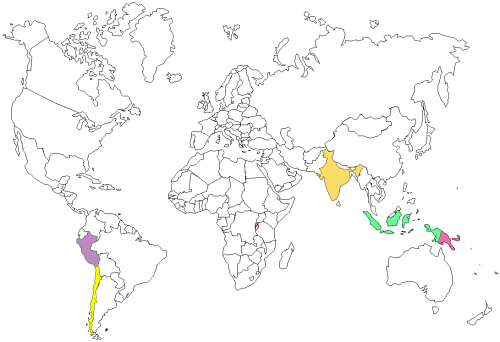
*CHL’s country presence outside of Australia.



